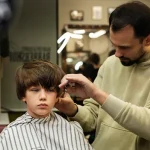From bustling city festivals to tranquil wellness retreats, the world of events and lifestyle has evolved into a dynamic blend of culture, connection, and creativity. As people seek more personalized and enriching experiences, the way we celebrate, network, and unwind is changing. This article dives into how events shape our lifestyle and vice versa, offering insight into emerging trends, cultural impacts, and practical tips for living vibrantly.
Understanding Events and Lifestyle
What Does “Events and Lifestyle” Mean?
The phrase events and lifestyle refers to the interaction between the occasions we attend and how they reflect or influence our way of living. Events could be social gatherings, corporate functions, festivals, or even private retreats, while lifestyle pertains to the habits, attitudes, and values that shape our daily lives. Together, they form a cycle: our lifestyle influences the events we choose to attend, and those events, in turn, affect how we live and what we value.
Why It Matters in Today’s Society
In a fast-paced digital world, real-life connections are more valued than ever. Whether it’s attending a TEDx talk or a yoga workshop, people are seeking experiences that align with their identity and aspirations. This shift shows how events and lifestyle trends have become central to wellness, career growth, and social fulfillment.
Major Trends in Events and Lifestyle
1. The Rise of Wellness and Mindfulness Events
Wellness events from sound healing sessions to silent retreats are drawing large audiences across the globe. According to the Global Wellness Institute, the wellness economy was valued at over $4.9 trillion in 2023 and continues to grow rapidly. These events not only promote self-care but also align with a lifestyle focused on balance, mindfulness, and sustainability.
2. Hybrid and Virtual Events
Post-pandemic life has reshaped how events are hosted. Hybrid events allow people to participate both in-person and online, blending convenience with community. This flexibility is appealing to digital nomads, remote workers, and those with accessibility needs. The trend also reflects a lifestyle that values adaptability and technological integration.
3. Experience Over Possessions
Today’s consumer prioritizes experience over ownership. Research by Eventbrite shows that 78% of millennials would rather spend money on an experience than a product. This shift in mindset is heavily reflected in the growing popularity of music festivals, pop-up dining events, and travel adventures demonstrating how the events and lifestyle sphere promotes living in the moment.
Cultural Influences on Events and Lifestyle
Celebrating Diversity and Inclusion
Modern events increasingly focus on inclusivity celebrating diverse cultures, identities, and traditions. Events like Pride parades, Diwali festivals, and Lunar New Year celebrations showcase how culture plays a vital role in lifestyle, encouraging open-mindedness and global citizenship.
The Power of Social Media
Instagram, TikTok, and YouTube have transformed the way we experience and share events. Hashtags like #EventLife or #LifestyleGoals not only promote visibility but also influence trends and expectations. Social media users are not just attendees; they’re content creators, making events and life style a digital phenomenon as much as a physical one.
Events and Lifestyle in Urban vs. Rural Settings
Urban Living: Fast-Paced and Trend-Focused
City life is typically event-heavy, with access to art galleries, fashion weeks, concerts, and networking meetups. The lifestyle here is fast-paced and centered around innovation and social climbing. This environment nurtures ambitious individuals who use events for exposure, learning, and influence.
Rural Settings: Nature-Centric and Community-Based
In contrast, rural events often focus on nature, tradition, and community bonding like farmers’ markets, county fairs, or local wellness retreats. The events and life style dynamic here fosters simplicity, slow living, and a closer connection with the environment.
Practical Tips for Embracing Events and Lifestyle
1. Align Events with Personal Values
When choosing which events to attend, consider your core values. Are you passionate about sustainability? Attend zero-waste festivals or eco-retreats. Interested in personal growth? Look for leadership conferences or spiritual workshops. Your event choices should support the lifestyle you want to cultivate.
2. Set a “Lifestyle Calendar”
Much like a work calendar, a lifestyle calendar helps plan enriching experiences throughout the year. Include:
-
Monthly wellness events (e.g., hiking, yoga classes)
-
Seasonal cultural festivals
-
Educational seminars or online summits
-
Weekend social gatherings or creative workshops
3. Budget for Experience
Allocate a portion of your monthly or yearly budget to events. Whether it’s $50 for a local show or $1,000 for a week-long retreat, investing in experiences is investing in your happiness and growth.
Economic Impact of Events and Lifestyle
According to Allied Market Research, the global events industry is projected to reach $2.1 trillion by 2032. Lifestyle events such as music festivals, wellness expos, and tech summits contribute significantly to local economies by boosting tourism, hospitality, and small business growth.
Key Economic Benefits Include:
| Benefit | Impact |
|---|---|
| Job Creation | Event planning, hospitality, media, logistics |
| Tourism Revenue | Travel, accommodation, food services |
| Local Business Promotion | Craft vendors, food trucks, wellness brands |
| Urban Revitalization | Use of public spaces, increase in infrastructure |
Sustainability in Events and Lifestyle
Green Events Are the Future
From compostable utensils to solar-powered stages, sustainable event planning is becoming a norm. Lifestyle-conscious consumers now prefer eco-friendly events that minimize waste and carbon footprint. For example, the Glastonbury Festival in the UK has taken major steps toward sustainability, including banning single-use plastics.
Eco-Friendly Lifestyle Choices
A lifestyle influenced by eco-conscious events often includes:
-
Minimalist fashion choices
-
Plant-based diets
-
Green commuting (bikes, EVs)
-
Conscious consumption
Events and Lifestyle: Post-Pandemic Shifts
The COVID-19 pandemic dramatically changed how people view public gatherings and personal wellness. As life returns to normal, people are more selective about how they spend their time and money.
Post-Pandemic Trends Include:
-
Smaller, more intimate gatherings
-
Outdoor and open-air events
-
Increased focus on health and safety
-
Emphasis on mental well-being in lifestyle choices
The Role of Technology in Events and Lifestyle
From event discovery platforms like Eventbrite and Meetup to health apps and smart wearables, technology plays a major role in how we live and celebrate. Augmented reality, virtual reality, and AI are also being integrated into high-end events to create immersive experiences.
Examples of Tech in Lifestyle Events:
-
VR concerts
-
Digital detox retreats with app-blocking tools
-
Wearable devices tracking emotional states during mindfulness events
Conclusion: Crafting a Life Through Events
The connection between events and lifestyle is more than just socializing and self-care it’s a powerful tool for personal evolution. Whether you’re dancing at a music festival, attending a creative workshop, or simply exploring a new culture, each event becomes a thread in the fabric of your lifestyle. In this ever-evolving world, how will you design your life through the events you choose to attend?





